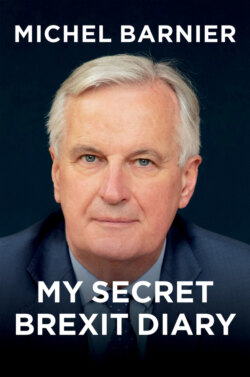Читать книгу My Secret Brexit Diary - Michel Barnier - Страница 30
Saturday, 8 October 2016: Theresa May among her own
ОглавлениеIn Birmingham, Conservative party officials are meeting, as they do every year at this time. Naturally, this year’s conference is particularly focused on Brexit, with party leaders set to discuss the reasons why their fellow citizens voted Leave. In her speech, Theresa May asserts her desire to build a ‘Global Britain’ following Brexit, and to forge a new role for the UK on the world stage.
There is a not insignificant element of ideology and nostalgia for an exalted past in her proclamations, as in those of other party officials. For example, describing to party activists the bright future he predicts for the country when it leaves the EU, David Davis declared that, by leaving Europe, the UK would achieve flexibility at a time when adaptation is crucial. He claimed that the UK had already created a language and a legal system for the whole world and that, in order to grow, the country would soon embrace the whole world, and trade with the whole planet.
One of the reasons for the Leave vote was a rejection of the free movement of persons. But British politicians pretend they don’t know that it was the UK itself which, at the time of EU enlargement, chose not to activate the clause that would have allowed limits to be imposed upon the free movement of workers from the new member countries.
Another reason, as correctly identified by Theresa May, was a yearning for protection: as she says, ‘the referendum was not just a vote to withdraw from the EU. […] It was about a sense – deep, profound and, let’s face it, often justified – that many people have today, that the world works well for a privileged few, but not for them.’
The Prime Minister is quite right to raise this point. But in the face of globalization, in the face of great continental states such as China and the US, can a single country – even the UK – really be better placed to protect its citizens than twenty-eight countries acting as one? Isn’t it better to stick together, in solidarity, rather than go it alone?
